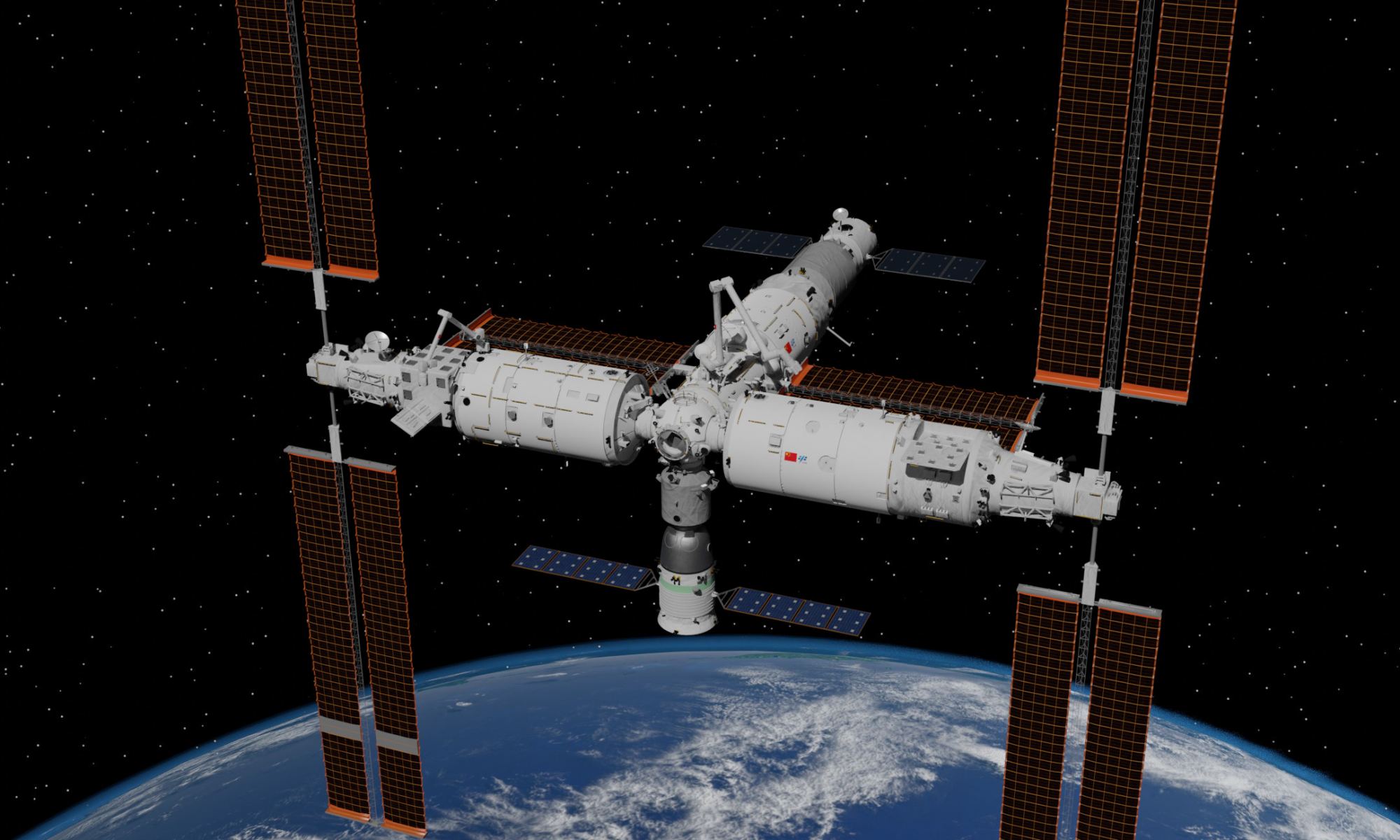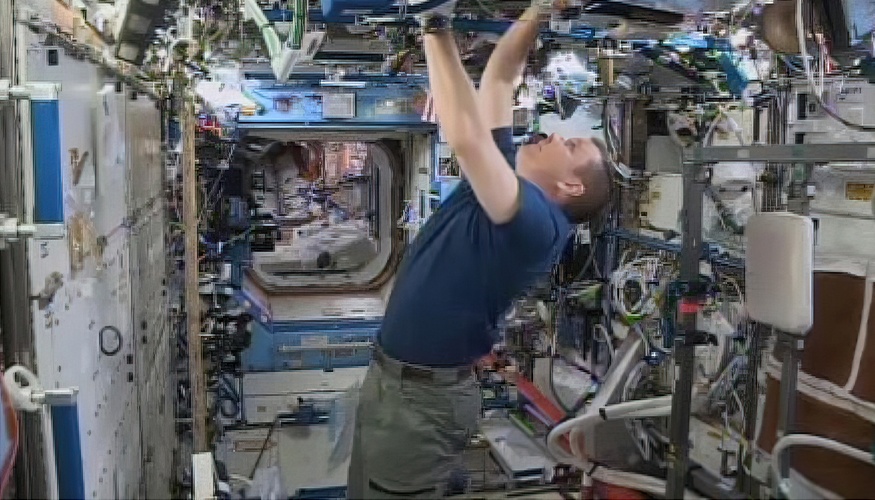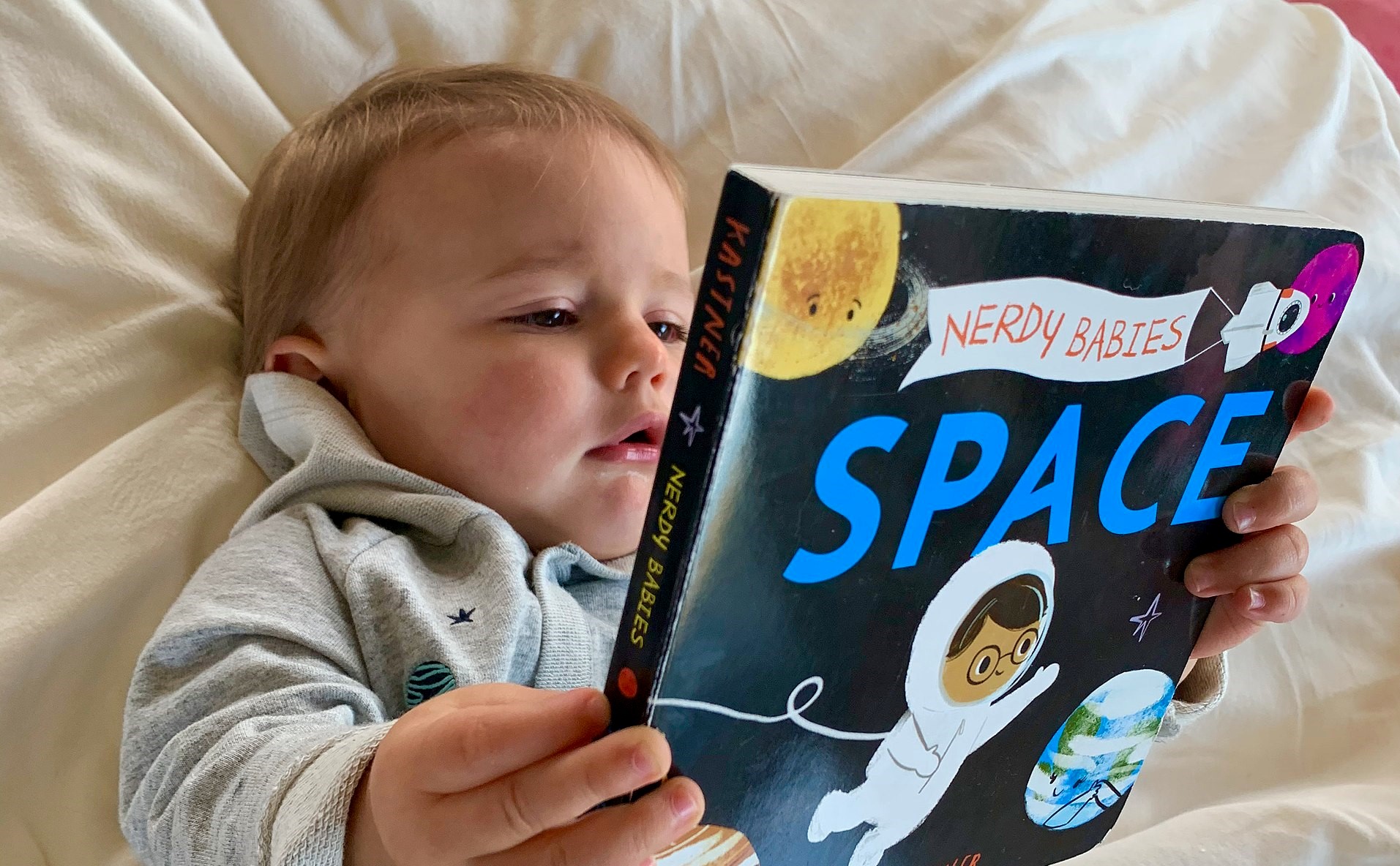The International Space Station (ISS) will be retired in 2030 after more than thirty-two years of continuous service. Naturally, there are questions regarding what will replace this station, which has served as a bastion for vital research and inter-agency cooperation in space. In the past, China has indicated that their Tiangong (“heavenly palace”) space station will be a successor and rival to the ISS, offering astronauts from other nations an alternative platform to conduct research in Low Earth Orbit (LEO). As part of this plan, China recently announced plans to double the size of Tiangong in the coming years.
Continue reading “China is Planning to Double the Size of its Space Station”Crew-7 Reaches the International Space Station

SpaceX Crew-7, the next group of four astronauts, are now on board the International Space Station, and this diverse crew is definitely putting “International” in the ISS. The new crew hails from four different countries: the US, Denmark, Japan and Russia. There will be 11 people on board the station for a few days before the Crew-6 foursome head back to Earth.
NASA has at least 200 science experiments and technology demonstrations queued up for Crew-7[‘s six months space, many of which will help prepare for the upcoming Artemis missions.
Continue reading “Crew-7 Reaches the International Space Station”Spacecraft Could Shuttle Astronauts and Supplies to and From the Moon on a Regular Basis
Multiple space agencies plan to send astronauts, cosmonauts, and taikonauts to the Moon in the coming years, with the long-term goal of establishing a permanent human presence there. This includes the NASA-led Artemis Program, which aims to create a “sustained program of lunar exploration and development” by the decade’s end. There’s also the competing Russo-Chinese International Lunar Research Station (ILRS) effort to create a series of facilities “on the surface and/or in orbit of the Moon” that will enable lucrative research.
Beyond these government-agency-led programs, there are many companies and non-government organizations (NGOs) hoping to conduct regular trips to the Moon, either for the sake of “lunar tourism” and mining or to build an “International Moon Village” that would act as a spiritual successor to the International Space Station (ISS). These plans will require a lot of cargo and freight moving between Earth and the Moon well into the next decade, which is no easy task. To address this, a team of U.S./UK researchers recently released a research paper on the optimum trajectories for traveling between Earth and the Moon.
Continue reading “Spacecraft Could Shuttle Astronauts and Supplies to and From the Moon on a Regular Basis”Thierry Legault’s Stunning Views of the Space Station (with spacewalking astronauts) Crossing in Front of Sunspots
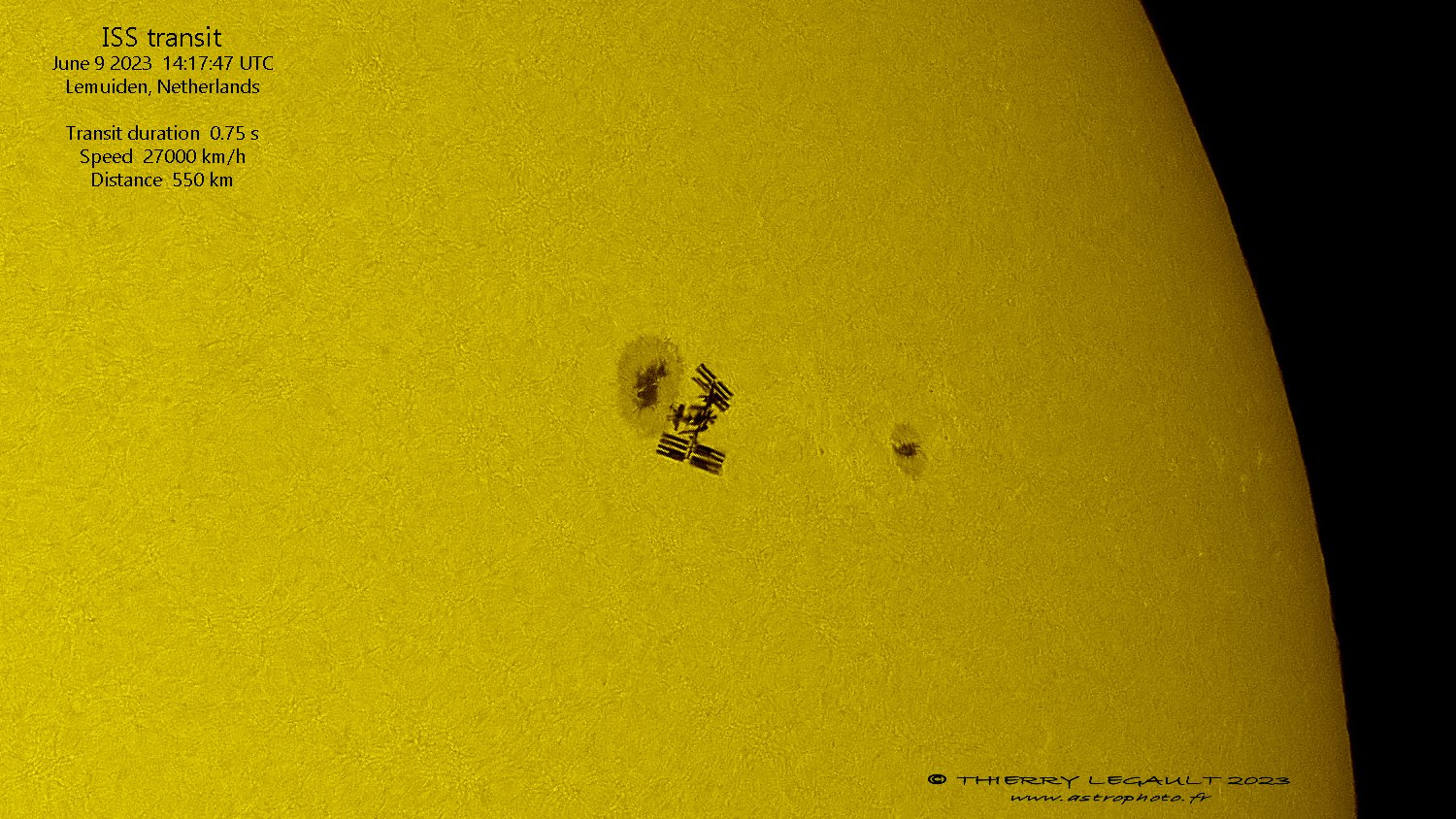
He’s done it again, outdoing even his own incredible work.
Over the years, we’ve written many articles to share the beautiful and mind-bending astrophotography of Thierry Legault. Each year he seems to come up with ideas to try to surpass even his own craziest attempts of astrophotography feats – such as capturing spy satellites in orbit, or snapping pictures of the International Space Station (ISS) transiting the Sun during a solar eclipse.
Now, he was able to take pictures of the ISS transiting the Sun while two astronauts were doing a spacewalk. As an added challenge, Legault made sure he was in the right place at the right time so he could capture the ISS (and astronauts) while they were passing by three enormous sunspots.
WHAT??
Continue reading “Thierry Legault’s Stunning Views of the Space Station (with spacewalking astronauts) Crossing in Front of Sunspots”The Private Axiom-2 Mission is Almost Ready to Fly to the International Space Station
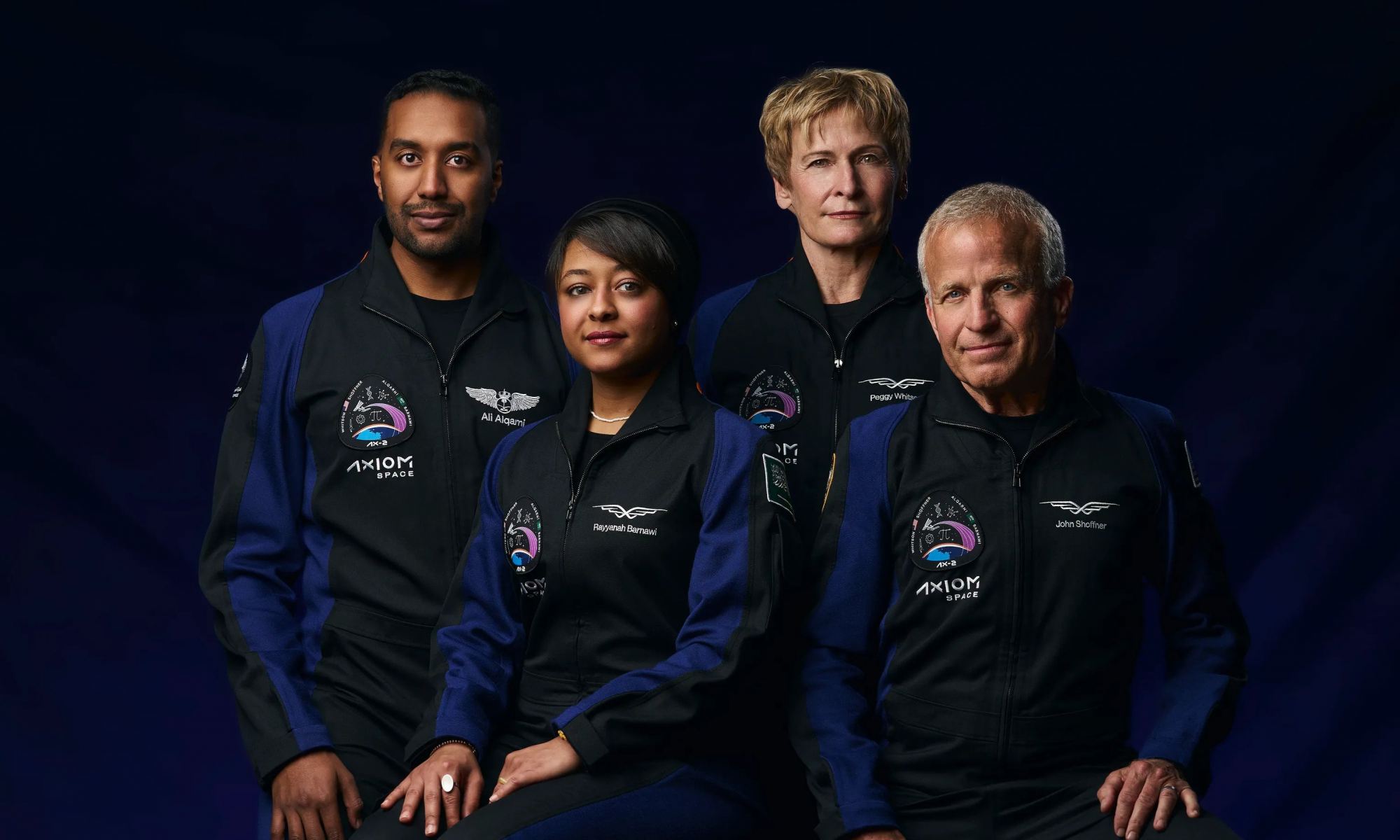
SpaceX’s second private astronaut mission to the International Space Station (ISS), Axiom-2 aka Ax-2, which is sponsored Axiom Space, received a “go” for launch from NASA on May 15 followed by a stamp of approval from Mother Nature on May 19, and finally a completion of the Launch Readiness Review (LRR) on May 20. Liftoff is currently scheduled for May 21 at 5:37pm EDT (2:37pm PDT) from NASA Kennedy Space Center’s historic launch complex 39A, which was the launch site for all crewed Apollo-Saturn V launches starting with Apollo 8, along with Skylab, dozens of Space Shuttle launches, and starting in 2017 with SpaceX.
Continue reading “The Private Axiom-2 Mission is Almost Ready to Fly to the International Space Station”Axiom’s U.S.-Saudi Crew Approved for Private Mission to Space Station
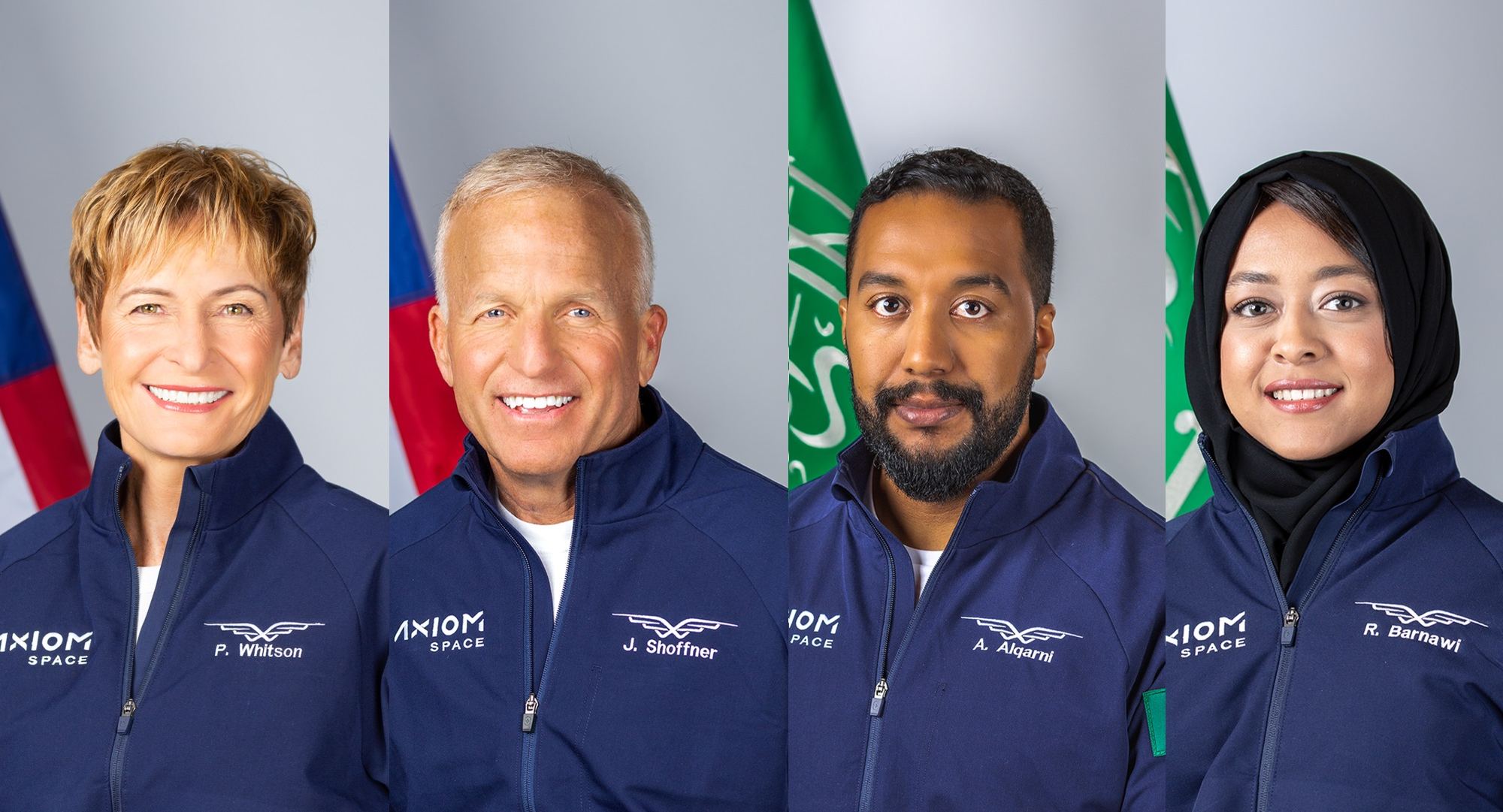
NASA and its international partners have approved the crew lineup for Axiom Space’s second privately funded mission to the International Space Station — a lineup that includes the first Saudi woman cleared to go into orbit.
Two of the former crew members — former NASA astronaut Peggy Whitson and John Shoffner, a Tennessee business executive, race car driver and aviator — had previously been announced.
They’ll be joined by Ali AlQarni and Rayyannah Barnawi, representing Saudi Arabia’s national astronaut program. Only one other Saudi citizen — Sultan bin Salman Al Saud, who flew on the space shuttle Discovery in 1985 — has ever been in space. The 10-day Axiom Space mission, known as Ax-2, is currently scheduled for this spring.
Continue reading “Axiom’s U.S.-Saudi Crew Approved for Private Mission to Space Station”The International Space Station Gets a Clean Bill of Health. Despite a Few Opportunistic Microbes, the Station is “Safe” for Astronauts
In a recent study published in Microbiome, a team of researchers led by NASA’s Jet Propulsion Laboratory conducted a five-year first-of-its-kind study investigating the microbiome (environmental profile) of the International Space Station (ISS). The purpose of the study was to address “the introduction and proliferation of potentially harmful microorganisms into the microbial communities of piloted spaceflight and how this could affect human health”, according to the paper.
Continue reading “The International Space Station Gets a Clean Bill of Health. Despite a Few Opportunistic Microbes, the Station is “Safe” for Astronauts”Space Tourists Have Booked Their Next Private Mission to the International Space Station
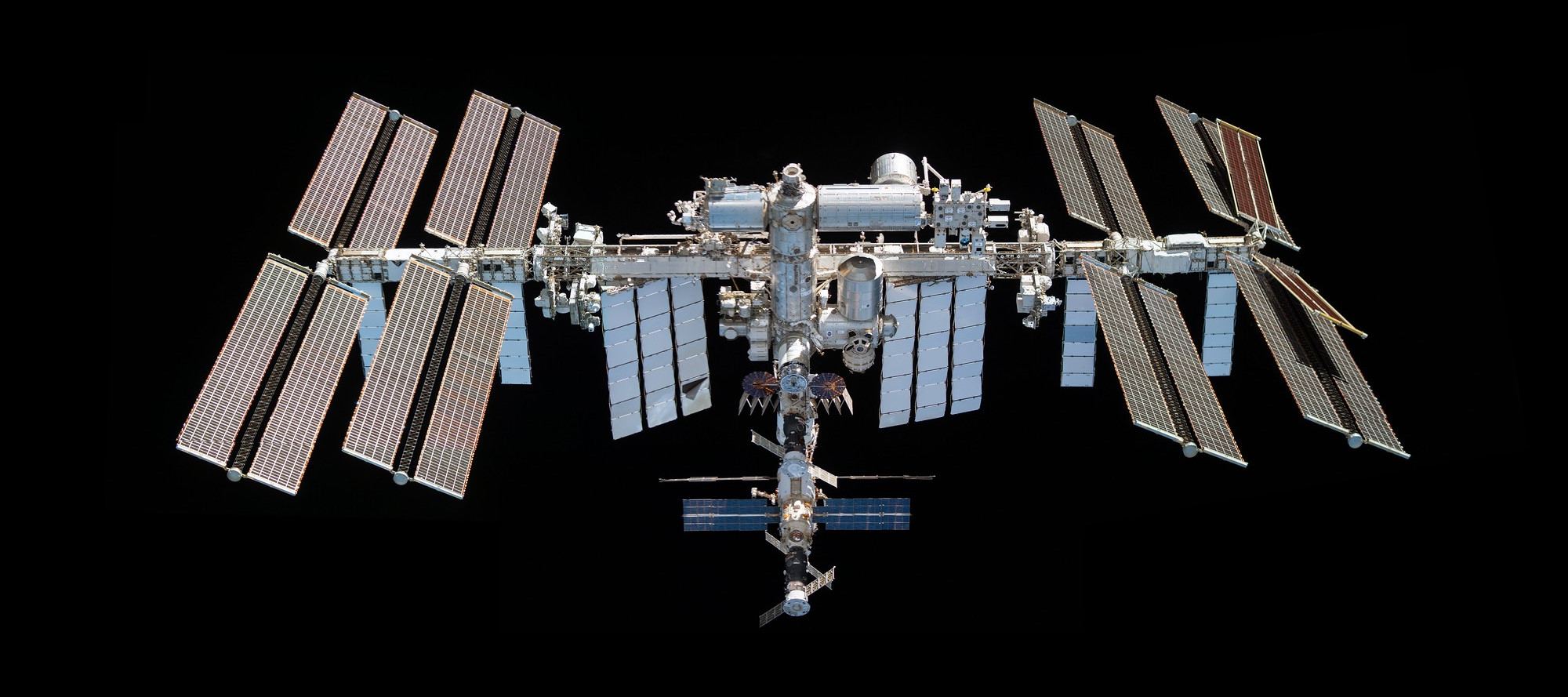
In April of this year, the first all-private astronaut mission to the International Space Station was successfully conducted when Axiom Space sent four non-NASA astronauts to space during the 17-day Axiom-1 Mission (Ax-1). Based on the endeavor’s success, NASA and Axiom Space have signed an agreement for the second such mission to the ISS, which will take place in the second quarter of 2023.
Continue reading “Space Tourists Have Booked Their Next Private Mission to the International Space Station”We Still Have no Idea if it's Safe to be Pregnant in Space
Can humans reproduce in space? The short answer is that we don’t know. The long answer is maybe, but there are significant barriers to overcome to make zero-gravity pregnancy safe, and research into the subject is only just beginning.
Continue reading “We Still Have no Idea if it's Safe to be Pregnant in Space”Spacewalk Cut Short, Cosmonaut Told to “Drop Everything” and Go Back Into the Space Station
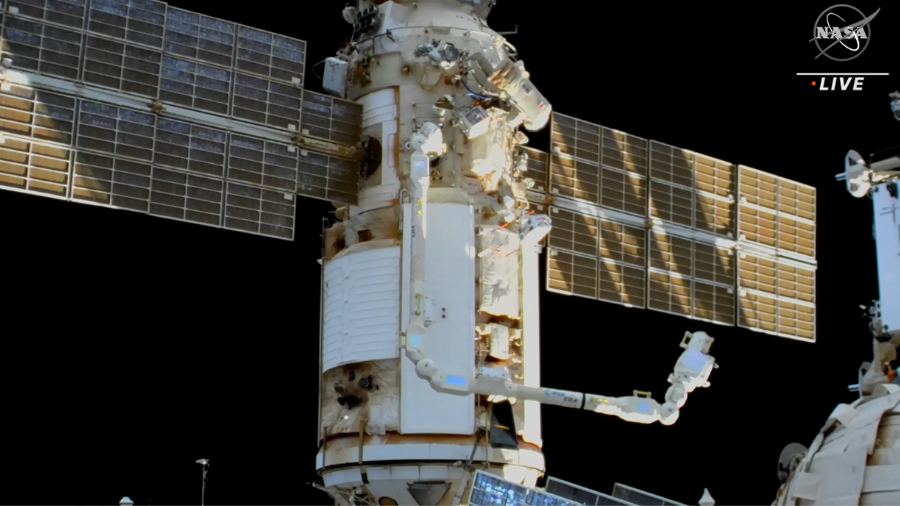
Russian and US flight controllers decided to cut short a spacewalk by two cosmonauts outside the International Space Station yesterday after voltage fluctuations in Oleg Artemyev’s Orlan spacesuit caused concern. About halfway into a scheduled seven-hour EVA, Artemeyev was repeatedly ordered to drop what he was working on and return to ISS’s airlock.
“Drop everything and start going back right away,” was one of the translated messages heard during a NASA livestream of the spacewalk. “Oleg, you must return to the airlock as soon as possible because if you lose power, it is not only the pumps and the fan, you will lose comm. You have to go back.”
Continue reading “Spacewalk Cut Short, Cosmonaut Told to “Drop Everything” and Go Back Into the Space Station”
